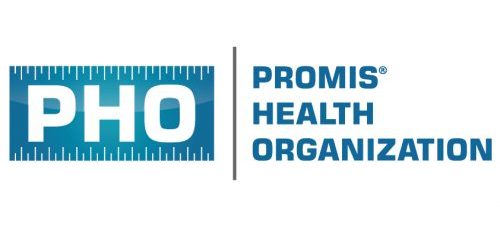Patient Reported Outcomes Measurement Information System (PROMIS®) is a system of highly reliable, valid, flexible, precise, and responsive measures of patient reported health status for physical, mental, and social well being. The authoritative source for PROMIS instruments, documentation, translations, scoring, and implementation guidance is HealthMeasures, in collaboration with the PROMIS Health Organization.
HealthMeasures provides key information on the PROMIS conceptual model, development and validation, instrument details, item response theory, short forms and computer adaptive testing, translations and translation methodology, scoring manuals and reference values, cross walks to legacy instruments, conditions of use, guidance for building PROMIS into data collection platforms, recommendations for graphical feedback, and links to publications and presentations.
To explore PROMIS content directly, start here: PROMIS on HealthMeasures. For scoring and interpretation, see Scoring and interpreting PROMIS.
PROMIS International involves activities conducted by US PROMIS researchers and PROMIS international partners. The Hungarian PROMIS National Centre supports PROMIS related activities in Hungary and acts as a national point of contact. Dr Istvan Mucsi (Semmelweis University and University of Toronto) is the lead representative for the Hungarian PROMIS National Centre.
PROMIS in Hungary
The PROMIS 57 (including shorter versions PROMIS 43 and PROMIS 29) and the PROMIS 29 plus 2 profile instrument have been translated by a multidisciplinary team. For Hungary specific enquiries, including access pathways and collaboration, please contact contact@promishungary.org.
The translated questionnaires are currently being validated in patients with chronic kidney disease and in patients with spine problems. They have also been used in pregnant women to assess health related quality of life. The research group led by Dr Fanni Rencz, Associate Professor, Department of Health Economics, Corvinus University, is analysing data from a nationally representative study enrolling 1700 participants. The primary objective is to assess general health related quality of life in Hungary using the PROMIS 29 plus 2 questionnaire, including generation of national normative values.
Recently the PROMIS Preference (PROPr) score has been developed as a summary score for PROMIS instruments. PROPr is a preference based scoring system for seven PROMIS domains and provides a generic, societal, preference based summary score of health related quality of life. It supports simultaneous collection of both health profile and preference based scores and can be used to quantify health related quality of life for multiple purposes, including QALY based health economic analyses.
The national representative for PROMIS Hungary is Dr Istvan Mucsi, Associate Professor of Medicine, University of Toronto and Staff Nephrologist, University Health Network, Toronto. His team is validating tools developed by the NIH PROMIS programme among solid organ transplant recipients and among patients on dialysis. A medium term goal is to support electronic data collection platforms, including tools that use computer adaptive testing, to systematically assess patient reported outcome measures in relevant clinical populations.
Resources includes direct links to HealthMeasures and the PROMIS Health Organization for PROMIS documentation, translations, scoring, cross walks, conditions of use, implementation guidance, and publications.



